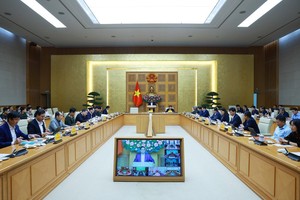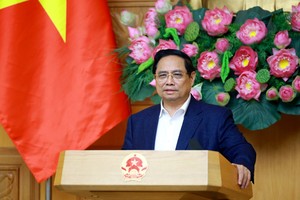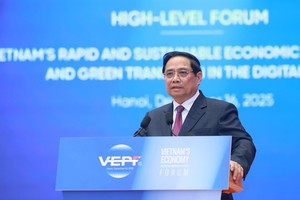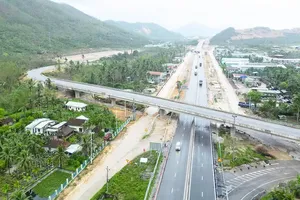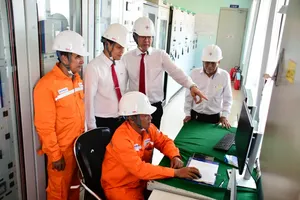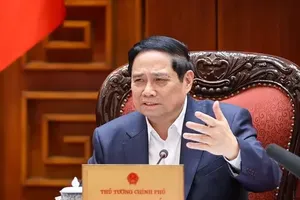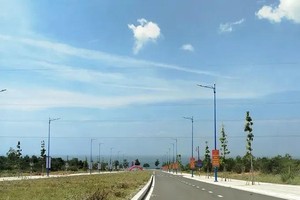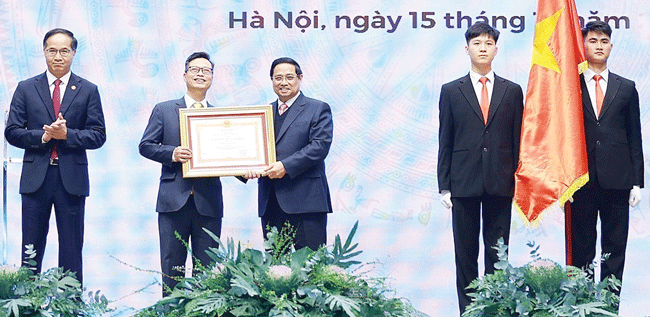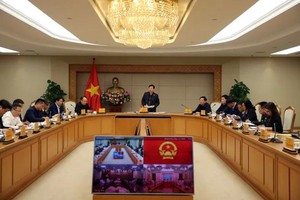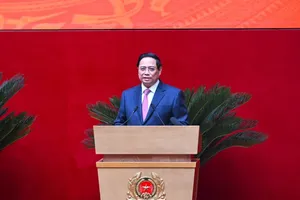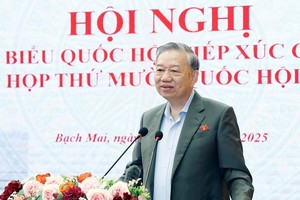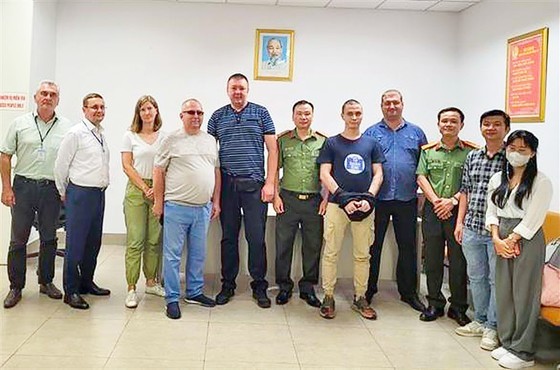
Grounds for developing Extradition law
According to Major General Pham Cong Nguyen, Director of the Department of Legal Affairs and Administrative and Judicial Reform (Ministry of Public Security), this proposal stems from the current increase of dangerous crimes, transnational crimes, international crimes, and non-traditional crimes.
Besides, after more than 15 years of implementing the Law on Mutual Legal Assistance 2007, there have been limitations and significant impacts on extradition activities. In particular, the law regulates 4 areas, but each area has its own scope of regulation with different objects, purposes and nature. Therefore, it is difficult for the law to be applied uniformly, inhibiting the general provisions of the law from regulating the specific characteristics of each field.
Some provisions of the 2007 Law on Mutual Legal Assistance on extradition are not compatible with international law, practices and treaties to which Vietnam is a member, leading to difficulties in the organization and implementation process.
 |
Vietnam's Ministry of Public Security hands over suspect Daniil Alekseevich Kolodnitskiy to the delegation of the Russian Federation. |
To date, Vietnam is a member of more than 20 multilateral international treaties with provisions related to extradition. From 2007 until now, the government has negotiated and signed 16 agreements specializing in extradition with 16 countries. The promulgation of the Extradition Law will thus help Vietnam to implement its international commitments and obligations.
Careful evaluation and adoption of appropriate regulations
To evaluate and select appropriate regulations, Vietnam's Ministry of Public Security has carefully reviewed 22 multilateral international treaties with provisions related to extradition and 16 bilateral agreements on extradition that Vietnam has signed. The country also learns from the experiences of other countries during their negotiations over extradition treaties with Vietnam.
In the process of developing Vietnam's Extradition Law, the ministry has collected documents and legal regulations of countries that have many similarities with Vietnam or have many Vietnamese suspects hiding (such as China, Japan, the Russian Federation, or countries of the European Union), and researched the United Nations' model law on extradition, international and regional treaties, such as the European Convention on Extradition, or the draft ASEAN Agreement on extradition (under negotiation).
Death penalty not limited to extradition
Currently, serious criminals in Vietnam tend to flee to countries that require a commitment not to impose the death penalty in extradition, which will lead to criminals being overlooked, thus causing unpredictable consequences. In response, the current death penalty stipulated by Vietnamese law does not limit the extradition of people who may be sentenced to death.
Adding this provision to the Extradition Law not only ensures Vietnam's international commitments when participating in international treaties but also ensures that criminals receive the punishment they deserve. This regulation is ultimately aimed at suspects who are fleeing abroad, bringing them back to Vietnam for punishment. When this regulation is passed, it will also contribute to improving the responsibility of competent domestic agencies.
Expanding criminal prosecution of the extradited
The Ministry of Public Security also proposed to add regulations on expanding the scope of criminal prosecution for people requested to be extradited. In other words, after being extradited to the requesting country, during the process of investigation, prosecution, trial and sentence execution, if additional crimes are discovered that the extradited person has committed on the territory of the requesting country before fleeing to the requested country, the countries can negotiate with each other to expand the criminal prosecution of the extradited person.
This has been stipulated in international treaties on extradition to which Vietnam is a member.
Urgent arrest for extradition
The Ministry of Public Security also proposed urgent arrest for extradition. In fact, Vietnam is a member of 21 bilateral international treaties on extradition that have provisions on urgent arrest of persons requested to be extradited before receiving an official one. Accordingly, in urgent cases, the competent authorities of one Contracting State may request the other Contracting State to arrest the person while waiting for the official extradition request.
In particular, the 7 extradition agreements with the Russian Federation, Czechoslovakia (inherited by Czechoslovakia and Slovakia), Mongolia, Laos, Poland, Cuba, and Bulgaria also stipulate their competent agencies to arrest a person present in its territory if there are grounds to determine that this person has committed in the other Contracting State an extraditable offense under the treaty without a request for arrest. The agreements also stipulate that the person arrested in this case must be detained in the arresting Contracting State for a certain period of time (at least 1 month) from the date the other Contracting State receives notice of arrest.
The above provisions of the agreements are intended to ensure the effective implementation of extradition requests, avoiding the case where the person whose extradition is requested continues to abscond while waiting for official extradition requests. Thus, this regulation is completely consistent with international treaties to which Vietnam is a member.
Agreement on Mutual Legal Assistance in Criminal Matters ratified
President Vo Van Thuong has just signed Decision No. 1109/2023/QD-CTN approving the Agreement on Mutual Legal Assistance in Criminal Matters between the Socialist Republic of Vietnam and the Czech Republic, at the request of the Government in Report No. 394/TTr-CP dated August 22, 2023.
Vietnam and the Czech Republic have established diplomatic relations for more than 70 years. The cooperative relationship between the two countries is growing stronger and more comprehensive. Currently, the Vietnamese community in the Czech Republic is recognized as the 14th ethnic minority of the Czech Republic.
Vietnam and Czechoslovakia signed the Agreement on Mutual Legal Assistance in Civil and Criminal Matters in 1982 (currently inherited by the Czech Republic), which is a legal framework for the two sides to coordinate in resolving requests for mutual legal assistance in civil and criminal matters in recent times.
To meet new practical requirements, the ratification of a separate agreement on criminal legal assistance to replace the provisions in the 1982 agreement is necessary, contributing to perfecting the legal framework on mutual legal assistance between the two countries.
The ratification of the agreement is in line with the proactive foreign policy as well as the active, comprehensive and extensive international integration of Vietnam Party and State as responsible members of the international community. This also shows Vietnam's effort to deliver its international commitments in the field of criminal justice and cooperation in fighting crime.




